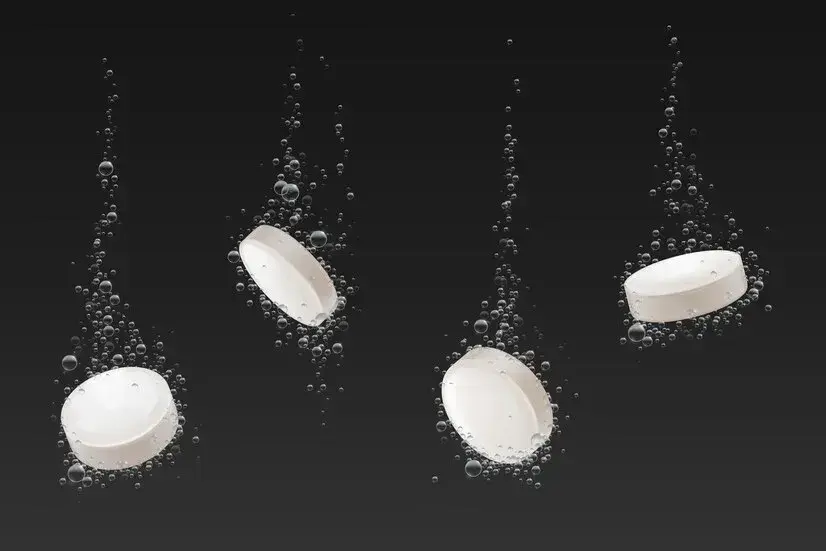High blood pressure, commonly known as hypertension, is a global health concern that has been a consistent contributor to health complications and fatalities. When blood pressure spikes, it exerts excessive force against the walls of our arteries and veins. In the ancient science of Ayurveda, this condition is termed 'RaktaGataVata'.
In today's unpredictable world, our health often takes a backseat, but the repercussions of neglect can be long-lasting. So, why not understand the importance of maintaining blood pressure and how to do it naturally?
Decoding Blood Pressure Numbers
Ever wondered about those blood pressure readings? A standard healthy blood pressure reading is 120/80. Here's what those numbers signify:
Systolic: Represents the pressure in your arteries when your heart beats.
Diastolic: Indicates the pressure when the heart is resting between beats.
Understanding Types of Hypertension
-
Primary Hypertension: Its exact cause remains a mystery but is believed to arise from a mix of genetic and environmental factors.
-
Secondary Hypertension: Caused by specific conditions, often related to the endocrine system or kidneys.
Factors contributing to high blood pressure include lack of exercise, excessive salt intake, processed food diets, obesity, unhealthy lifestyle choices like smoking and drinking, stress, aging, chronic kidney disease, and obstructive sleep apnea.
Ayurveda's Insight on Hypertension
According to Ayurveda, the root of any disease is in the imbalance of the Doshas - Vata, Pitta, and Kapha, which govern our physical and mental well-being. Modern-day dietary and lifestyle choices directly impact our body, leading to an excess of VataDosha. This imbalance results in the production of ama (toxins), which hinders blood flow. With blood being the primary carrier of the disease, Pitta and Kapha further aggravate the condition, leading to hypertension.
Mukta Vati a traditional Ayurvedic preparation, has gained recognition for its potential to help manage hypertension by promoting healthy blood pressure levels and supporting cardiovascular health.
Ayurvedic Recommendations for Managing Hypertension
-
Diet: A key factor in lowering high blood pressure is what you eat.
-
Lifestyle - Making adjustments to your way of life, such as giving up smoking and bingeing.
-
consuming alcohol, getting more active, losing weight if you're obese, and correctly managing your stress
-
Cooking formulas Your kitchen has a lot of potential to improve your health.
-
Rehab Services - To get rid of the poisons
-
Ayurvedic Treatments: The best herbal extracts for treating high blood pressure include Nir Brahmi ghan, Sarpagandha, Arjun Ghan, etc.
-
Getting rid of Ama (Mucus/Toxins) - Ama tends to build up in the system and obstruct the body's channels, which can lead to a number of illnesses. The combination of the aforementioned 5 procedures aids in the elimination of the ama or mucus present in the body.
- Laxmi Vilas Ras is an effective Ayurvedic medicine used to treat a wide range of conditions, including hypertension, diabetes, skin diseases, and gynecological disorders.
Dietary Recommendations-
60 percent cooked vegetables, 30 percent protein, and 10 percent carbohydrates make up a healthy diet. The simplest way to lower high blood pressure is to keep a regular diet; if you do this and make the following changes to what you eat, you'll definitely avoid any more problems.
-
If you are above 35 to 40, absolutely avoid wheat.
-
Eat a gluten-free diet
-
Eat more fruits, vegetables, and low-fat dairy products.
-
Consume food that is freshly prepared rather than processed
-
Limit items that are high in saturated fat and cholesterol
-
Put more emphasis on proteins
-
Eat whole grains like millet, quinoa, spelt, and dinkel. Avoid dairy products and red meat. Consume chicken, fish, and eggs if you're not a vegetarian.
-
Add fresh juices and soup to your regimen.
-
Varanadi kashayam is indeed an Ayurvedic product used in the treatment of hypertension and related conditions.
-
When seeking natural remedies for hypertension relief, exploring the benefits of Varanadi Kashayam can indeed be valuable.
Yoga: A Natural Antidote to Hypertension
Engaging in mind-body relaxation practices like yoga and meditation can be therapeutic. Yoga was designed for holistic health rehabilitation. Regular practice of specific asanas and Pranayama can help in reducing blood pressure. Some beneficial poses include:
-
Savasana (Corpse Pose): Reduces stress.
-
Sukhasana (Easy Pose): Relaxes the mind.
-
Anulom Vilom Pranayama: A breathing technique that relaxes the body.
-
Bhujangasana (Cobra Pose): Improves blood circulation.
-
Ardha Matsyendrasana (Half Lord of the Fishes Pose): Calms the mind and body.
-
Viparita Karani (Legs-Up-the-Wall Pose): Enhances relaxation
Incorporating the Ayurveda products uk tips can pave the way for a healthier, more balanced life. Remember, the journey to wellness is continuous, and every positive step counts.

Reviewed by




